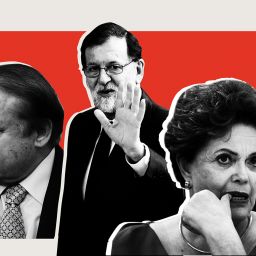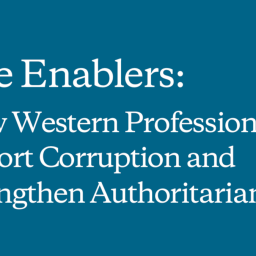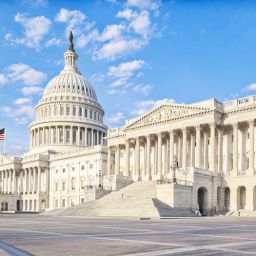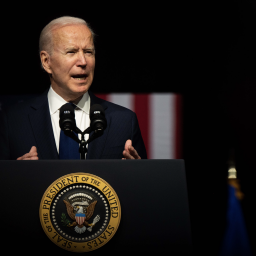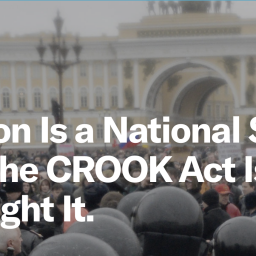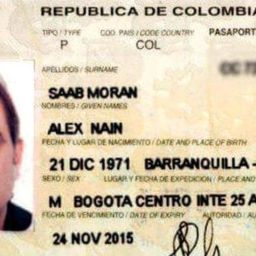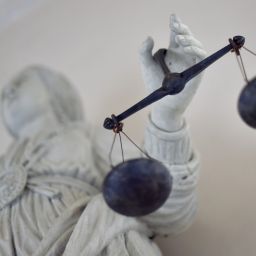21 Anti-Corruption Commitments for 2021
The latest Corruption Perceptions Index shows little or no progress in the fight against corruption around the world. Though a number of countries have made measurable gains in recent years, an almost equal number have declined. Of the 180 countries and territories reviewed in the latest index, more than two-thirds scored below 50 on a scale of 0 to 100. Across the globe, authoritarianism is on the rise and democratic institutions are under threat.

The United States’ score has been falling for several years and, this year, hit a new low.
As a new Congress and a new administration begin, we have an opportunity to act on a comprehensive and integrated approach to combating corruption, one that helps clean up our financial and political systems at home, and leverages the U.S.’s resources, expertise, and leadership in the fight to end corruption abroad.
It is in this context that Transparency International’s U.S. office has compiled the most promising and significant ideas in a bipartisan plan for combatting global corruption.
“These proposals have been discussed and debated. They are largely consensus ideas. They are practical, impactful, and have bipartisan support. In short, they have a real shot at getting done,” said Gary Kalman, Director of TI’s U.S. Office. “Collectively, these measures would change the calculus for corrupt actors in the U.S. and around the world.”
Following the bipartisan passage of a landmark anti-corruption bill, there is a continuing opportunity to build an integrated approach to combating corruption that reinforces both the U.S. commitment to the rule of law and its global leadership in the fight to end corruption.
“Corruption is a systemic problem that demands a systemic solution,” said Kalman. “Because the global financial system, supply chains, and legal frameworks are so interdependent, corruption will not be addressed piecemeal or ad hoc. That’s why we’re proposing this whole-of-government approach to combatting corruption.”
The approach is organized around four fundamental questions:
Who are the people? There are good actors, seeking to report and call out corruption, and there are bad actors, seeking to hide dirty money, exploit loopholes, and obfuscate the truth. This set of proposals protects the whistleblowers, disables the facilitators, and catches the criminals.
Where is the money? Corruption is, at its base, about money and influence. Follow the money, and you will find the corruption. These measures strengthen the power of the U.S. government and its allies to follow dirty money and root out corrupt actors.
What are the loopholes? Corruption thrives because loopholes exist, or because laws are poorly enforced. Most loopholes are unintended and are straightforward to close; others exist because powerful enablers constructed them. Either way, loopholes facilitate crime, corruption, and threats to democracy. Without systematically closing these loopholes and strengthening our laws, corruption will always find a way.
How do we strengthen institutions? To fundamentally address corruption, some institutions must be strengthened, while others must be fundamentally transformed. Our agenda aims to build an army of anti-corruption allies and watchdogs with resources and reliable institutions to protect them.
“The road to America’s perceived decline has been paved with corruption,” said Scott Greytak, Director of Advocacy for TI’s U.S. office. “We’ve written a roadmap for the Biden Administration and the new Congress that can get the United States back on track, install new safeguards, and empower the United States Government to lead the global fight against corruption once again.”
###
Transparency International is the world’s largest coalition against corruption. We give voices to victims and witnesses of corruption, and work with governments, businesses, and citizens to stop the abuse of entrusted power. In collaboration with national chapters in more than 100 countries, we are leading the fight to turn our vision of a world free from corruption into reality.
Our U.S. office focuses on stemming the harms caused by illicit finance, strengthening political integrity, and promoting a positive U.S. role in global anti-corruption initiatives. Through a combination of research, advocacy, and policy, we engage with stakeholders to increase public understanding of corruption and hold institutions and individuals accountable.
Related Resources Combating Global Corruption: A Bipartisan Plan [Full Report]
Media Contact Scott Greytak, Director of Advocacy, Transparency International U.S. Office Telephone: +1 614-668-0258 Email: [email protected] Twitter: @TransparencyUSA

